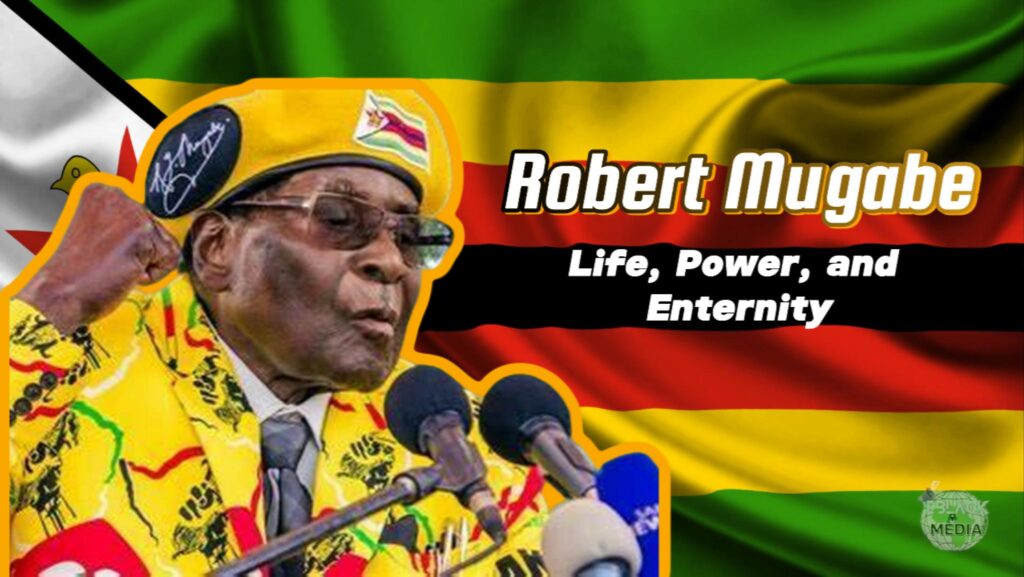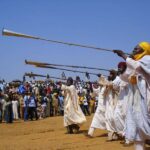Delve into the life and rule of Robert Mugabe, from his early days as a freedom fighter to his controversial leadership in Zimbabwe. Explore his complex legacy with this insightful blog.
Robert Mugabe: Freedom Fighter or Tyrant?
Delve into the complex life and legacy of Robert Mugabe, from his early struggles in colonial Southern Rhodesia to his controversial 37-year rule in Zimbabwe.
Early Life and Political Awakening
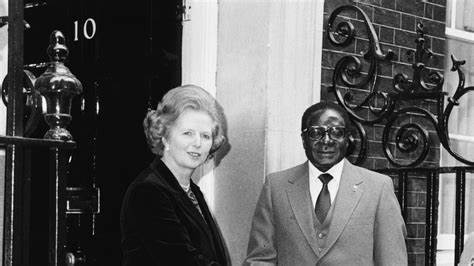
Robert Mugabe grew up in colonial Southern Rhodesia (now Zimbabwe) during the time when the country was ruled by the British. This was a difficult period marked by:
- Displacement – The local people, including Mugabe’s family, were often forced to move from their homes and lands by the British colonial authorities.
- Ethnic tensions – There were conflicts and tensions between the different ethnic groups living in the region under colonial rule.
- Impact of British colonial rule – The British had a strong influence over the country and its people, imposing their own laws, policies and way of life.
Despite these challenges in his early life, Mugabe was able to excel academically. He was a very bright student and did very well in his education.
Later, when Mugabe went to study in South Africa, this experience helped to awaken his political consciousness. He started to develop strong views and beliefs about how a country should be governed, especially in contrast to the colonial rule he had experienced.
This political awakening during his time in South Africa played an important role in shaping Mugabe’s future as a political leader and the way he would later govern Zimbabwe after it gained independence from Britain.
Formation of Zapu and Zanu

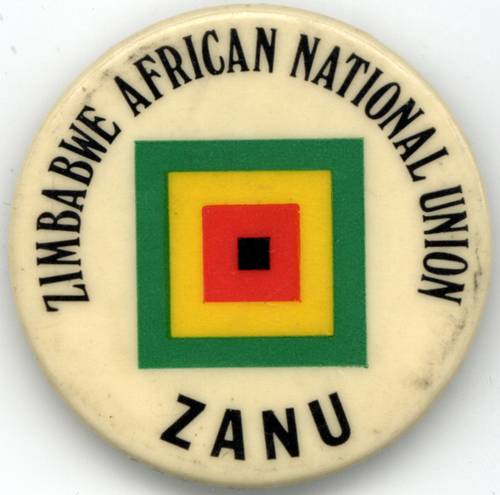
The Zimbabwe African People’s Union (ZAPU) and the Zimbabwe African National Union (ZANU) were pivotal liberation movements in the fight against colonial rule in Zimbabwe. ZAPU, founded in 1961 by Joshua Nkomo, emerged as a leading force against the Rhodesian government. However, internal disagreements over strategies and ideologies led to a split in 1963, resulting in the formation of ZANU by Ndabaningi Sithole, with Robert Mugabe as its Secretary General. ZANU adopted a more militant approach, advocating for armed struggle against colonial oppression. Over time, Robert Mugabe rose to prominence within ZANU, becoming a key figure in Zimbabwe’s eventual path to independence in 1980.
Continued Commitment to Black Majority Rule: Despite facing opposition and repression from the white minority Rhodesian Front party, Mugabe remained steadfast in his commitment to fighting for black majority rule in the country. The formation of ZAPU and later ZANU showed his determination to pursue this goal through tumultuous times.
Incarceration and the Rhodesian Bush War: The context highlights that Mugabe’s involvement in establishing these nationalist movements occurred during a period of instability and conflict, including his own incarceration and the broader Rhodesian Bush War. This demonstrates the challenging circumstances under which he was operating.
Evolving Nationalist Movements: The formation of ZAPU and then ZANU suggests an evolution in the nationalist struggle, with Mugabe playing a key role in shaping these movements as the political landscape shifted.
Foreshadowing of Future Events: The context provided sets the stage for Mugabe’s later rise to power and the eventual independence of Zimbabwe from white minority rule. This background helps contextualize the significance of these early nationalist efforts led by Mugabe.
The new information highlights Mugabe’s unwavering commitment to the cause of black majority rule, even in the face of adversity, as well as the dynamic nature of the nationalist movements he was involved in shaping during this pivotal period in Zimbabwean history.
Consolidation of Power
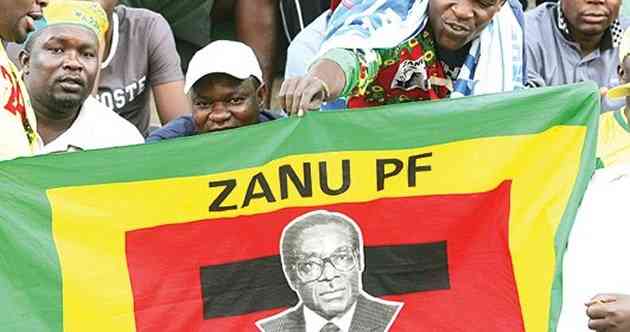
Mugabe’s rise to complete control of ZANU-PF, arrest of potential rivals, and capturing of Zimbabwean people’s support in the 1980 elections solidified his position, leading to the transition to black majority rule in the newly named Zimbabwe.
Continued Authoritarian Rule: Despite the transition to black majority rule, Mugabe and ZANU-PF have maintained a firm grip on power in Zimbabwe over the past 40+ years. The political system remains highly centralized and authoritarian, with limited space for opposition voices.
Economic Challenges: Zimbabwe has faced prolonged economic crises, including hyperinflation, high unemployment, and shortages of basic goods. This has led to widespread poverty and hardship for the population.
Human Rights Abuses: There have been numerous reports of human rights violations, including political repression, crackdowns on dissent, and the use of violence against civilians by security forces under Mugabe’s rule.
International Isolation: Zimbabwe has been subject to various international sanctions and has had strained relationships with Western nations due to concerns over its human rights record and governance.
Succession Struggles: In recent years, there have been power struggles within ZANU-PF over Mugabe’s succession, leading to political instability and uncertainty about the country’s future direction.
Calls for Reform: Civil society groups, opposition parties, and some international actors have continued to call for political and economic reforms in Zimbabwe to address the country’s challenges and move towards more democratic governance.
Overall, while the transition to black majority rule was an important milestone, Zimbabwe has struggled to consolidate democratic institutions and address the legacy of Mugabe’s authoritarian consolidation of power over the past four decades.
Economic Boom and Decline
Zimbabwe initially experienced economic success under Mugabe, with lifted sanctions and improved race relations resulting in growth. However, corruption, population rise, ethnic tensions, and Mugabe’s contradictory politics ultimately led to economic decline, unemployment, and unrest.
International Significance and Personal Politics
Mugabe’s leadership on the international stage, characterized by contradictory politics, extravagant spending, and intolerance, had detrimental effects, leading to economic decline, food shortages, and unrest in Zimbabwe.
Challenges to Power and Controversial Elections
Mugabe faced challenges from within and abroad, including the rise of opposition parties and controversial elections. His eventual forced resignation marked the end of his 37-year rule in Zimbabwe, tarnishing his legacy as a freedom fighter.
Conclusion:
Robert Mugabe’s legacy is a complex tapestry, intertwining his early fight against colonialism with his later descent into tyranny, leaving a divided legacy that continues to shape Zimbabwe’s present.
